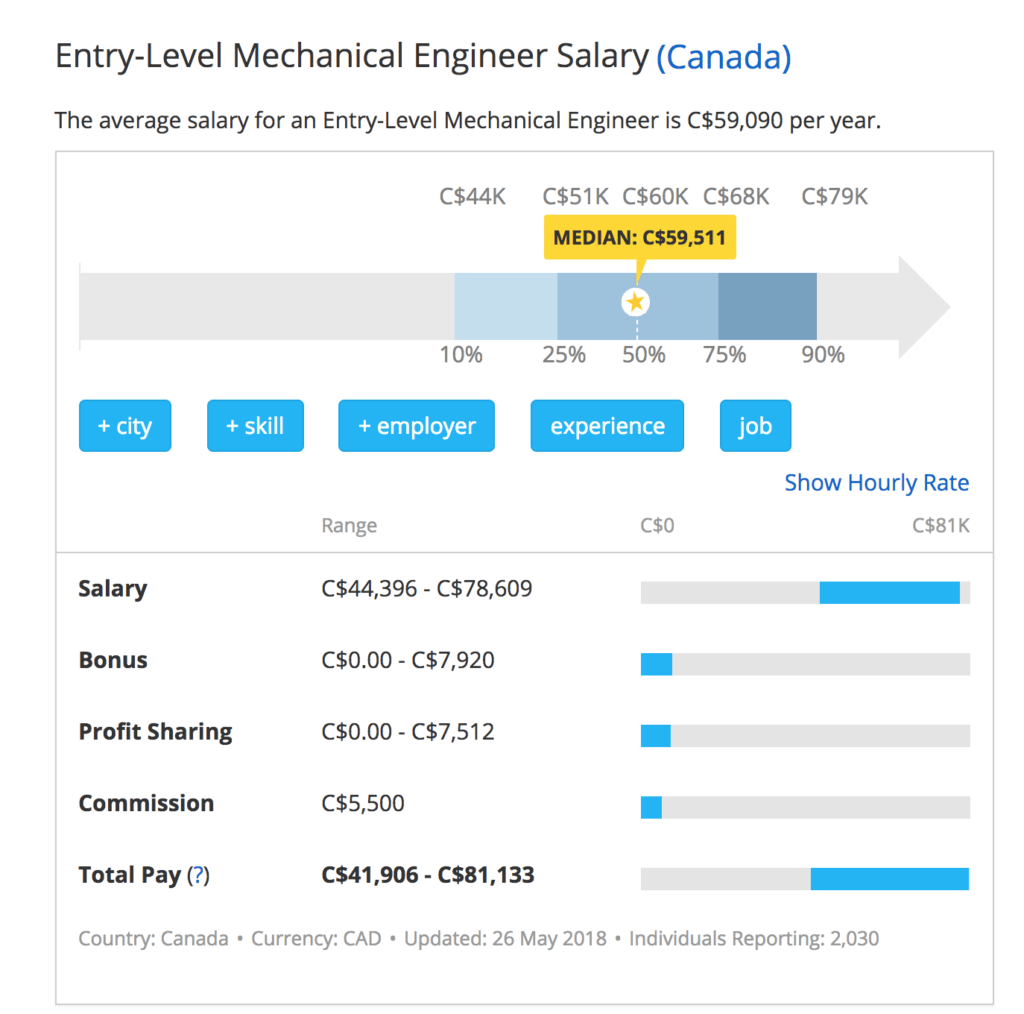Speaking of mechanical engineers, the image of "Iron Man" may spring to mind. In North America, many people have an inexplicable worship of mechanical engineers, because the impression they have of engineers is that they have high IQ, high salary, and are reliable people. This article will analyze the courses offered in the mechanical engineering major, the admission requirements, employment prospects, and the views of the top schools that offer this major, as well as the views of our netizens.
 Photo by Goh Rhy Yan on Unsplash
Photo by Goh Rhy Yan on Unsplash
Analysis of Mechanical Engineering 1: Programs, Curriculum, and School Rankings
-
Introduction to Canadian Mechanical Engineering
What makes an artificial heart beat? How do elevators and escalators move up and down? What makes robots walk and talk? During the recent launch of SpaceX and OneSpace rockets, what is the key to success? The answers can be found in the field of mechanical engineering.
A field full of vitality and challenges, such as mechanical engineering, is shining in this era. This field has become larger and larger since the Industrial Revolution, and have affected many aspects of our lives more and more profoundly. Over the past two to three centuries, mechanical engineers have invented the pipeline systems of airplanes, trains, cars, and factories. Almost every one of them is crucially significant. Today, in the 21st century, solar panels, robots, rockets, electric cars, high-speed railways, intelligent drones, and countless new technologies in mechanical engineering are further pushing the pace of human progress.Related articles of the engineering major:
What do students learn in Canadian mechanical engineering majors?
The mechanical engineering degree program is designed to help students become strong mechanical engineering professionals (if you want to become a P.Eng, you will need this). This professional course allows you to acquire the professional knowledge of design and development of various physical and mechanical systems.
》Mechanical Engineering Theory Courses
Mechanical engineering courses usually include introductory and advanced courses in many fields such as mathematics, physics, mechanics, materials, energy flow, fluid mechanics, electronics, mechanical control and measurement, thermodynamic systems, and many other subjects. The following are some typical courses:
- Computer Aided Drawing
- Dynamics
- Heat Transfer
- Fluid Mechanics
- Kinematics
- Thermodynamics
- Materials Science
》Mechanical Engineering Blended Learning Methods
Generally, in addition to learning about theory in the classroom, students of the mechanical engineering major must also complete a large number of projects in the laboratory to accumulate hands-on experience. Through these large-scale independent and/or group projects, students can acquire theoretical knowledge in the classroom and apply it to practical projects to further improve their mechanical professional skills.
》What are the employment skills of mechanical engineering graduates?
What are the key skills I need to become a mechanical engineer? In order to enter this industry, you need to be able to demonstrate the following key skills:
- Strong analytical thinking
- Ability to apply logic and innovation to solve practical problems
- Creativity and independence
- Good oral and written communication skills (in English)
- Teamwork skills
- Good mathematics and a high level of technical knowledge
- Ability to work under stress and manage budgets
- Good organization and management skills
Employment prospects of mechanical engineering graduates in Canada
Since the mechanical engineering major teaches students about technical expertise in mechanical design, mechanical control systems, instruments and tools, they have the ability to solve problems. Therefore, after graduation, you will have a wide range of employment options in the field of machinery: auto repair shops, automobile manufacturers, biomedical equipment manufacturers, or various other machinery-related jobs.
Below, we have selected occupations that are directly related to this degree and some that we consider to be indirectly related:
- Aviation Engineer
- Agricultural Engineer
- Aircraft Performance Engineer
- Aerospace Engineer
- Automation Engineer
- Automotive Engineer
- Construction Service Engineer
- Drafting Technician
- Energy Efficiency Engineer
- HVAC Engineer
- Helicopter Pilot
- Hydraulic Engineer
- Industrial Engineer
- Maintenance Engineer
- Manufacturing Engineer
- Material Handling Engineer
- Mechanical Engineers
- Nanotechnology Expert
- Nuclear Engineer
- Product Development Engineer
- Quality Control Expert
- Robotics Expert
- Structural Engineer
- Test Engineer
Please note: Some occupations listed above require additional education, training and/or experience. For example: if you want to become a HVAC engineer, then you need to get at least a Certificate in HVAC.
Jobs that Mechanical Engineering Graduates Can Do
By studying mechanical engineering at the university level, the knowledge and skills you acquire can provide you with a good foundation for various occupations.
The following is a list of the types of fields for graduates in mechanical engineering (not a full list)
- Aerospace
- Cars
- Energy Mechanics
- Heat Transfer and Thermal Fluid
- Heating, Ventilation and Air Conditioning
- Industrial Process and Manufacturing
- Industrial Robots and Controls
- Mechanical Research
- Micro Robot
- Metal Manufacturing
- Nuclear Power
- Oil and Gas Production
- Mining
- Power Generation
Salary of Mechanical Engineering Graduates: How much money is earned on average per year & the determinant of salaries
For mechanical engineering graduates, the salary level can vary greatly, usually depending on the following factors:
- Your education level (Bachelor, Graduate, etc.)
- Whether your career is in mechanical engineering
- Whether you have a professional title (such as P.Eng)
- Work experience
- The size and type of company
- The industry in which you are employed
- Work location
- Your English level (affects your chances of getting your first job)
Let's take a look at the average salary of general mechanical engineers.
According tothe 2013 Alberta Wage and Salary Survey Overviewthe average salary as a mechanical engineer is $94,843 per year in Alberta.
According to Labour Market Statistics from the government of British Columbia (BC), the overall average salary of people working in the "mechanical engineer" occupation is $85,548 per year in BC.
According toPayScale statistics,the average annual salary for entry-level mechanical engineering engineers in Canada is $59,090.
 (Source: PayScale)
(Source: PayScale)
College admission requirements for mechanical engineering:
- Language requirements: IELTS 5.5 or Grade 12 English: ENG4(C) or ENG4(U)
- Educational requirements: high school graduation
- Course prerequisites: Grade 12 Mathematics: (C) or (U) or Grade 11 Mathematics: MCR3(U)
Grade 12 Mathematics: (C) or (U) or Grade 11 Mathematics: MCR3(U)
Undergraduate admission requirements for mechanical engineering:
Each university has different admission requirements for mechanical engineering applicants. The general admission criteria are as follows:
- High school graduation
- Huikao exam results (if applicable)
- College entrance examination scores (If you did not take the college entrance examination, you need to contact the admission office)
- Excellent math and science grades are required; 12th grade calculus, physics, and chemistry are prerequisite courses.
- If you have excellent grades in school, but you do not have a sufficient language proficiency score (ibt 100, IELTS 6.5+ (6)), you may apply for the Foundation IFP course.
- IELTS 6.0 or above (some universities require IELTS 6.5)
Graduate admission requirements for mechanical engineering:
- Bachelor's degree
- GPA 3.0/4.3, B
- Language proficiency: IELTS 7.0
- It is best to have work experience or a record of achievements
Three mechanical engineering qualifications: college diploma, undergraduate degree, graduate degree
- Specialist diploma:Usually completed in 2-3 years. Generally subdivided into a specific field, such as automotive, etc.
- Bachelor’s Degree: Usually completed in 4 years
- Master’s Degree: Usually completed in 2-3 years. Mechanical engineering graduates research, design, develop and test machinery that drives generators, engines, gearboxes, turbines, refrigeration and air-conditioning equipment, tools, material handling systems, computers, prosthetics, biomechanical implants, pumps and industrial production equipment.
Three courses including mathematics and physics or three BTEC courses are typical admission requirements for undergraduate degree courses.
The best schools for mechanical engineering
According toMacLean's latest program rankings of Canadian universities结果显示,
1、University of Toronto (Engineering major)
2、University of Waterloo(Engineering major)
3、UBC(Engineering major)
4、University of Alberta(Engineering major)
5、McGill University(Engineering major)
6、University of Ottawa(Engineering major)
7、 Queen’s University(Engineering major)
8、Université de Montréal(University of Montreal Engineering major)
9、McMaster University(Engineering major)
10、University of Calgary (Engineering major )
11、University of Victoria (Engineering major)
12、Université Laval (Laval University - French institution)
13、Ryerson University(Ryerson UniversityEngineering major)
14、 University of Saskatchewan(University of SaskatchewanEngineering major)
15、Western University (Engineering major )
16、York University (Engineering major)
17、Dalhousie University (Dalhousie UniversityEngineering major)
18、Lakehead University (Engineering major)
19、Simon Fraser University(Engineering major)
20、Concordia University(Engineering major)
21、University of Ontario Institute of Technology (Engineering major)















